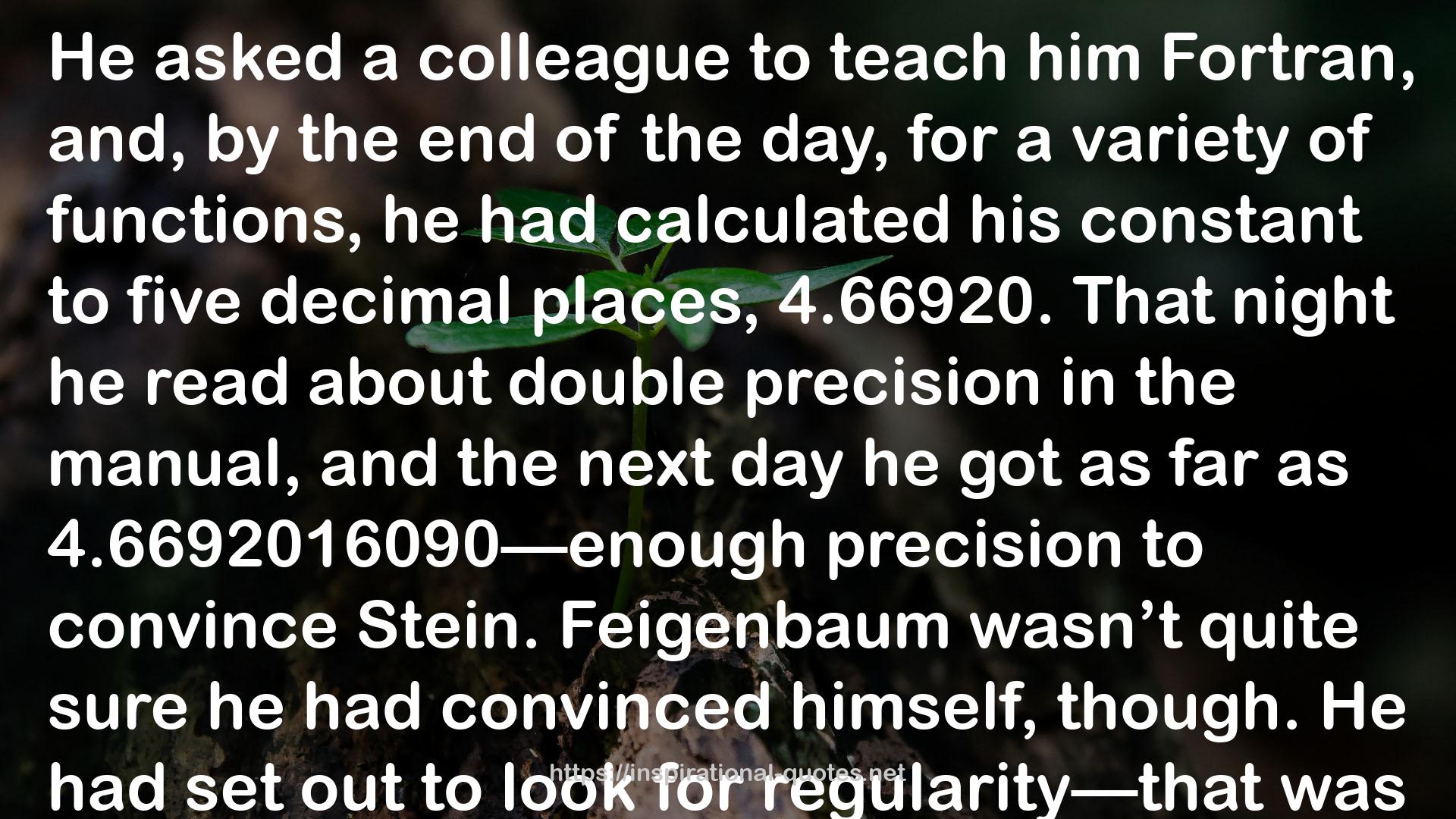" He asked a colleague to teach him Fortran, and, by the end of the day, for a variety of functions, he had calculated his constant to five decimal places, 4.66920. That night he read about double precision in the manual, and the next day he got as far as 4.6692016090—enough precision to convince Stein. Feigenbaum wasn’t quite sure he had convinced himself, though. He had set out to look for regularity—that was what understanding mathematics meant—but he had also set out knowing that particular kinds of equations, just like particular physical systems, behave in special, characteristic ways. These equations were simple, after all. Feigenbaum understood the quadratic equation, he understood the sine equation—the mathematics was trivial. Yet something in the heart of these very different equations, repeating over and over again, created a single number. He had stumbled upon something: perhaps just a curiosity; perhaps a new law of nature. "
― James Gleick , Chaos: Making a New Science
